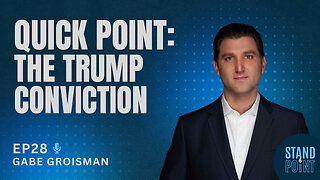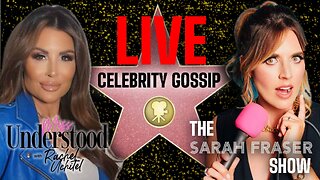New Research: 4 Things WILL that will make you Wake Up FEELING GREAT
a new study out of the University of California, Berkley has come up with 4 key things that will allow you to sleep better and wake up more refreshed.
Renue by Science 10% Discount Code: MYNMN (https://renuebyscience.com/?rfsn=5692699.331801&coupon-code=MYNMN)
Renue by Science 15% Subscription Service Discount Code: MYNMNSUB
DoNotAge.org 10% Discount Code: MYNMN (https://bit.ly/2VBDgNt)
I hope you enjoy my content and find it interesting or informative, if so, please consider supporting the channel by using one of the links below:
*Buy me a Kofi: https://ko-fi.com/mynmnexperiment
*Patreon: https://bit.ly/3hhfjl5
*SubscribeStar: https://bit.ly/3psYo23
My Current Anti-Aging Protocol:
• 1.5 grams of NMN (https://bit.ly/3c2Fxt8)
• 1.5 grams of Trans-resveratrol (Tue, Thu & Sat) (https://bit.ly/3yxeqy2)
• 500mg Metformin
• 1.5 grams of TMG (https://bit.ly/3oe1Ted)
• 5,000 IU (International Units) of vitamin D3 (https://bit.ly/3P32hYH)
• 120 mcg (micrograms) of vitamin K2 (Mk 7) (https://bit.ly/3PhkBgn)
• 250mg Magnesium (L-Threonate) (https://bit.ly/3O4pZ5o)
• 200mg high molecular weight hyaluronic acid (https://bit.ly/3P0Z4c2)
• 2,400mg of Fisetin, on the 1st, 2nd & 3rd of each month (https://bit.ly/3P2rSB0)
• 2,400mg of Quercetin, on the 1st, 2nd & 3rd of each month (https://bit.ly/3IzulAy)
• 81mg of aspirin (https://bit.ly/3uFjtem)
• 600mg DIM
Links:
https://www.nature.com/articles/s41467-022-34503-2
https://www.sciencedaily.com/releases/2022/11/221129143811.htm
https://www.sciencealert.com/oversleeping-is-not-bad-for-you-according-to-experts-but-don-t-make-it-a-habit
https://www.sciencealert.com/being-tired-or-fatigued-is-common-but-here-s-when-you-should-worry
https://www.sciencealert.com/most-of-us-hit-snooze-but-what-is-it-actually-doing-to-us
https://www.sciencedirect.com/science/article/abs/pii/S0149763418309175?via%3Dihub
This new study identified four key factors that make a difference in waking up well in the morning – powering through to lunchtime alert and refreshed at one end of the scale, or fighting through grogginess and multiple taps of the snooze button at the other.
The team behind the study said these factors, independent of the genetics that we are all born with, can all be modified - to some extent - to ensure we get off to a better start in the mornings, and ultimately set ourselves up for a successful day.
The team of researchers led by neuroscientist and sleep researcher Raphael Vallat of the University of California, in their published paper, asked the questions: "Why is it that we human beings fluctuate in our alertness from one day to the next?" and "Why do we wake one morning feeling alert, yet another morning, flounder in that level of alertness upon awakening?"
A total of 833 people participated in the study, most of whom were twins (this helped the researchers filter out variations due to genetics).
Over two weeks they recorded their food intake, their physical activity, their sleep patterns and their glucose levels.
The volunteers also rated their alertness at several points throughout the day.
The researchers looked at sleep duration, timing, and efficiency of sleep overnight.
Overall sleeping longer and waking up later than normal were both associated with better morning alertness.
My comment there is that they slept longer than normal and woke up later than normal; does this mean that their normal sleep patterns before the study were sub-optimal? What was their normal?
Higher levels of movement in the day (as well as strangely, less physical activity at night) were associated with more continuous and less disrupted sleep, which in turn predicted increased alertness from the participants in the morning. Although not surprising, good to know, and another reason to keep exercising as we age. But, they say less activity at night, this may be difficult to achieve for those who can only exercise at night. Morning meals with more carbohydrates led to better alertness levels, while more protein had the opposite effect.
By keeping the calories in the supplied meals the same, the researchers could focus on the nutritional content of what was being eaten.
Again, more Carbs leading to better alertness is not surprising, but what about the inevitable crash as insulin spikes?
Lastly, a surge in blood sugar levels after breakfast – this was tested using a pure glucose liquid drink and was associated with reduced alertness.
DISCLAIMER: This video and description contain discount codes, which means that if you use the code, I will receive a small commission.
FAIR-USE COPYRIGHT DISCLAIMER
Copyright Disclaimer Under Section 107 of the Copyright Act 1976, allowance is made for "fair use" for purposes such as criticism, commenting, news reporting, teaching, scholarship, and research. Fair use is a use permitted by copyright statute that might otherwise be infringing. Non-profit, educational, or personal use tips the balance in favor of fair use. #Sleep #Sleepy #Insomnia
-
 0:48
0:48
My NMN Experiment
5 months ago $0.06 earnedThis Way of Breathing is a Game Changer! #longevity #longevitysecrets #humanlifespan
186 -
 42:22
42:22
The Why Files
2 days agoProject Looking Glass | The Time Warriors of the 2012 Apocalypse
26.8K45 -

Major League Fishing
2 days agoLIVE Bass Pro Tour: Stage 5, Day 1
46.1K4 -
 1:48:49
1:48:49
Barstool Yak
6 hours agoThe Yak with Big Cat & Co. Presented by Rhoback | The Yak 6-6-24
13.1K3 -
 23:33
23:33
Lou Dobbs
16 hours agoThe Great America Show - Dark Money, Marxist Dem Nightmare
29.5K9 -
 1:05:28
1:05:28
Ben Shapiro
4 hours agoEp. 1980 - From The Greatest Generation To The Most Obnoxious Generation
50.2K63 -
 2:28:14
2:28:14
TheAlecLaceShow
5 hours agoGuests: Congressman Warren Davidson | Congressman Eric Burlison | Mark Geist | The Alec Lace Show
25K3 -
 14:25
14:25
Standpoint with Gabe Groisman
3 hours agoEp. 28. Quick Point. The Trump Conviction. 6/6/24
22.2K5 -
 1:16:53
1:16:53
Russell Brand
5 hours agoRussell Brand LIVE with Donald Trump Jr
111K234 -
 50:06
50:06
Miss Understood With Rachel Uchitel
1 day agoReality TV News & Gossip with Rachel Uchitel & Sarah Fraser
31.5K3